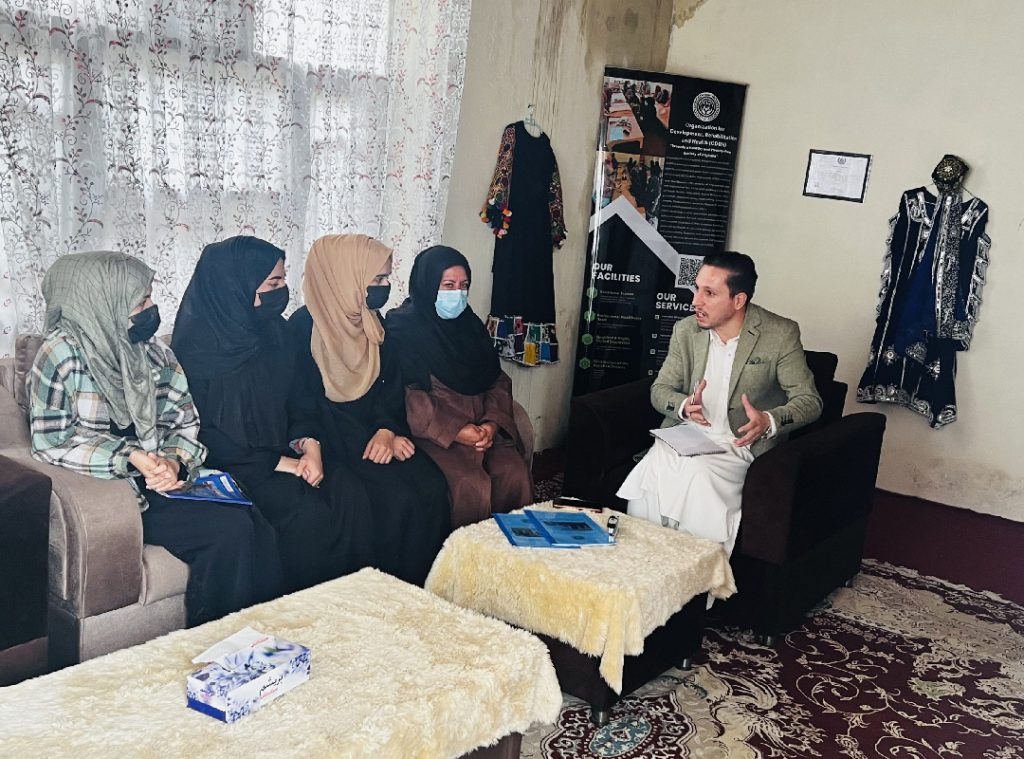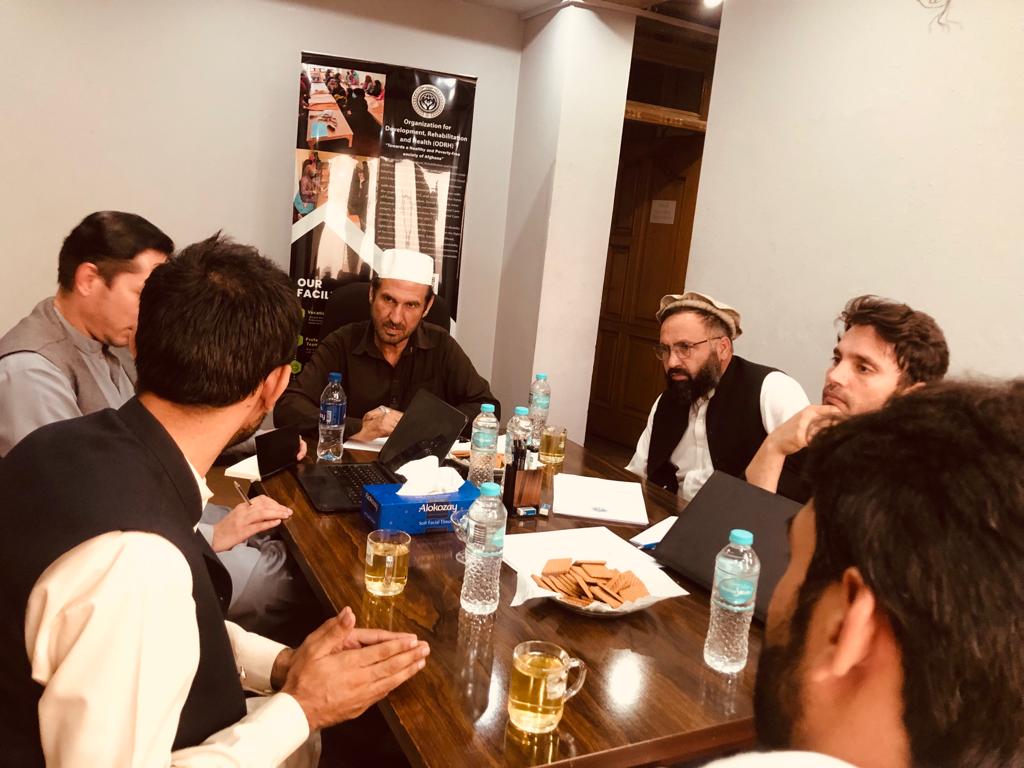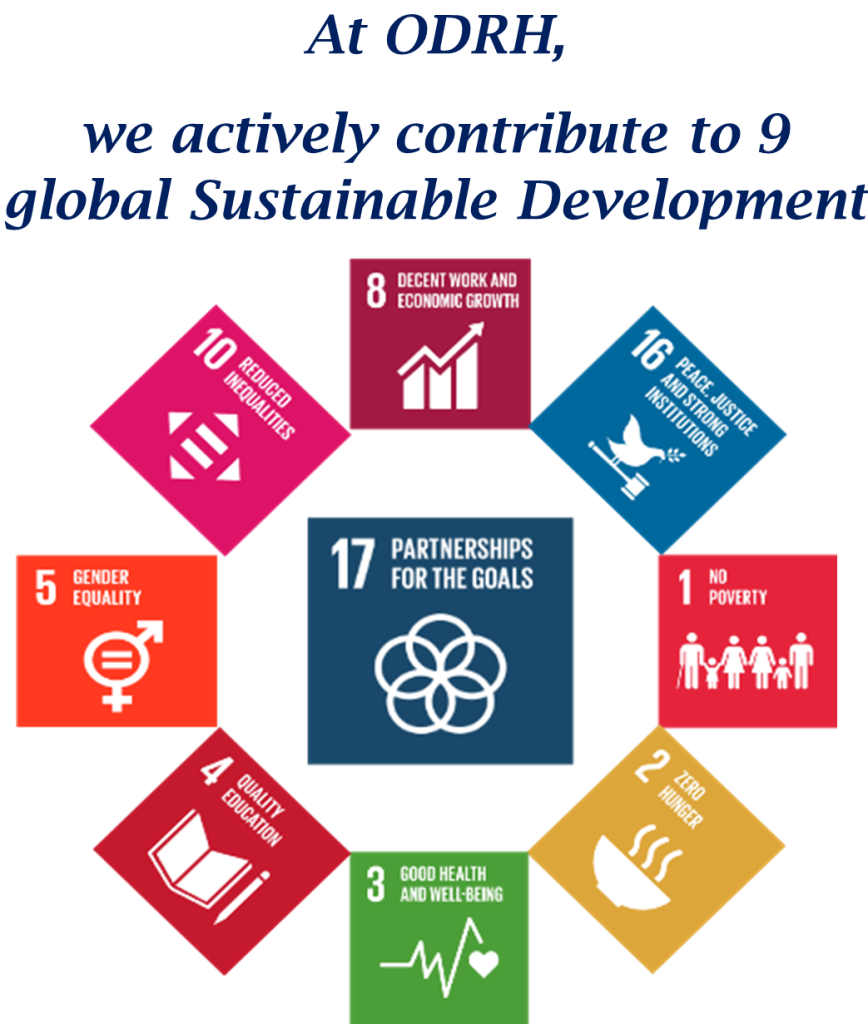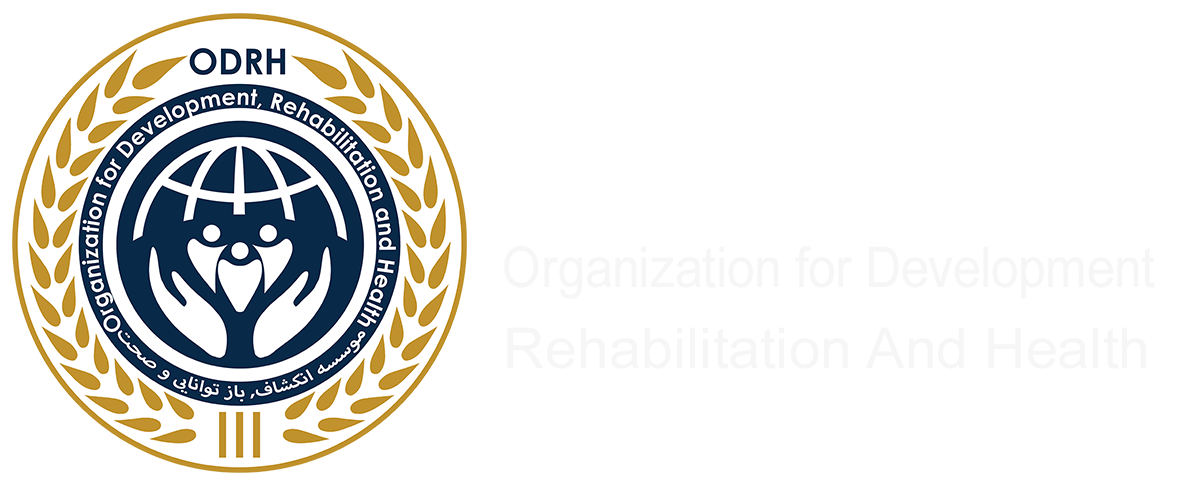Organization for Development Rehabilitation and Health




OUR HISTORY (OUR History and Evolution)
The Organization for Development, Rehabilitation, and Health (ODRH) was officially registered in 2021 with the Ministry of Economy of Afghanistan. Founded to address the pressing humanitarian and development challenges nationwide, ODRH emerged as a dynamic, community-driven organization dedicated to building resilient and inclusive societies.
Over time, ODRH broadened its programming scope to address key thematic areas including livelihoods, protection, gender-based violence (GBV) prevention, and emergency response. This evolution reflects the organization's mission to deliver holistic, rights-based, and impactful support to marginalized and crisis-affected populations. By integrating services across sectors, ODRH strengthened its impact in communities while advocating for the voices and rights of vulnerable groups, particularly women, children, and persons with disabilities.

ODRH’s vision and mission are grounded in full respect for International Humanitarian Law (IHL), the United Nations Convention on the Rights of Persons with Disabilities (UNCRPD), and in alignment with national frameworks. The organization collaborates closely with national and international organizations, government entities, and local communities to ensure effective and contextually appropriate implementation.

Key Milestones and Achievements
In 2021, ODRH established Vocational Training Centers in Laghman and Kabul provinces, providing skills development opportunities and social reintegration for youth and marginalized populations. Building on this success, ODRH expanded operations to Herat province in 2023, marking a significant step in broadening its reach and impact across the country.
By 2023, the organization had developed a strong operational presence through multiple regional and provincial offices. ODRH adopted participatory development approaches, ensuring that communities were active stakeholders in project planning, implementation, and monitoring. To uphold quality and accountability, ODRH institutionalized a robust Monitoring, Evaluation, Accountability, and Learning (MEAL) framework to inform decision-making and optimize results.A major milestone was achieved in 2023 and 2024 when ODRH successfully secured partnerships and project funding from UNDP and UN Women. These strategic collaborations have enabled ODRH to significantly scale up its programming in areas such as resilience-building, women’s empowerment, social protection, and inclusive development.
As of 2025, 55% of ODRH’s team are women, a notable reflection of the organization’s deep-rooted commitment to gender equality and inclusive workforce development.
Establishment and Early Operations (2023)
Officially registered with the Ministry of Economy of Afghanistan. Initial focus on health, education, protection, disability and rehabilitation, and Water, Sanitation, and Hygiene (WASH) services in remote and conflict-affected areas. Established foundational trust with communities and implemented pilot interventions in response to urgent humanitarian needs.
Programmatic and Geographic Expansion (2021–2023)
Opened multiple regional and provincial offices to enhance operational coverage. Introduced multi-sectoral programming, including food security, livelihood support, and emergency response initiatives. Invested in staff capacity and institutional systems for Monitoring, Evaluation, Accountability, and Learning (MEAL), finance, and procurement, thereby strengthening overall organizational efficiency.
Contribute to Sustainable Development Goals
ODRH focuses on supporting and contributing to the Sustainable Development Goals (SDGs) in Afghanistan, in line with the overall UN SDGs and targets. We actively contribute to almost half of the 17 SDGs (SDGs 1, 2, 3, 4, 5, 8, 10, and 16) and closely. Coordinate our development efforts and programs with national and subnational development actors
Advancing Gender Equality and Inclusion (2024–Present)
Achieved a workforce composition comprising 55% female employees, demonstrating significant progress in gender equity and inclusive hiring practices. Integrated Gender-Based Violence (GBV) prevention and protection activities into core programming. Supported community-based women's initiatives, child protection mechanisms, and models for inclusive participation.
Strategic Partnerships and Funding Growth (2020–Present)
Established collaborations with major donors, including the United Nations Development Programme (UNDP), UN Women, and Global Affairs Canada. Positioned the Organization for Development and Rehabilitation of Humanity (ODRH) as a reliable and strategic partner for international agencies pursuing local impact.
Community-Led and Sustainable Approaches (2021–Present)
Prioritized participatory development in collaboration with local Civil Society Organizations (CSOs), community shuras, and governmental bodies. Strengthened community systems to promote self-reliance and the sustainability of initiatives. Enhanced access to health, education, and protection services for thousands of individuals in both urban and rural settings.
Recognition, Accountability, and Growth
Committed to transparency, ethical resource management, and the empowerment of local communities. Reinforced organizational credibility through sound governance and community-centered project delivery. d project delivery.

